Symposium on person-centred and integrated care for older people
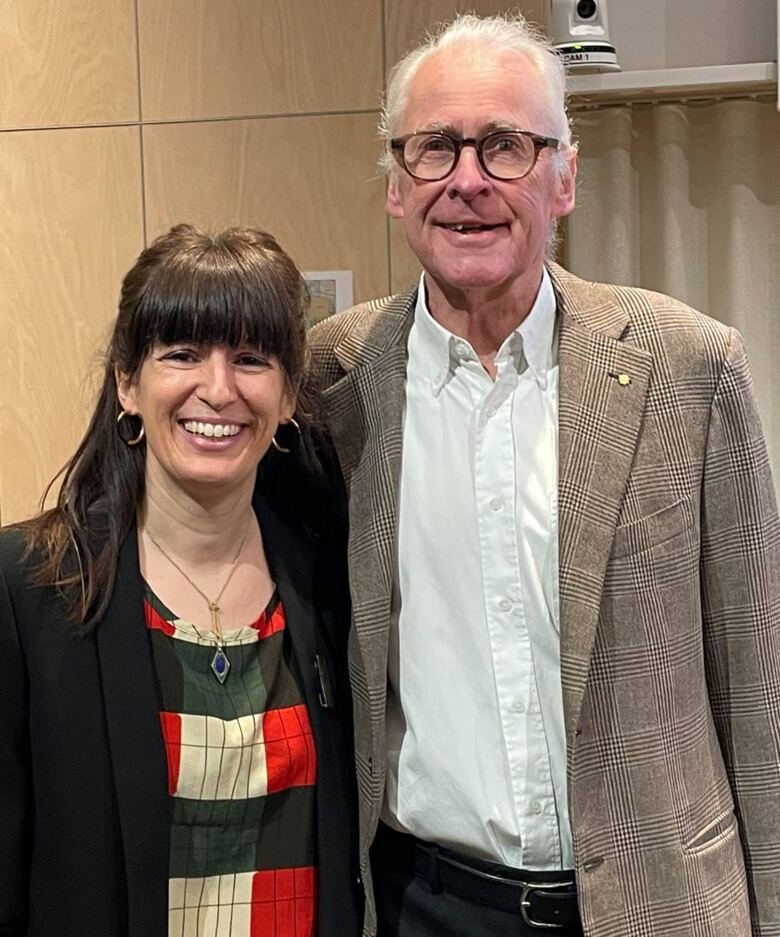
On 21 March 2023, researchers from several universities around the country, the Swedish Agency for Health and Care Services Analysis and Region Jönköping, gathered at Karolinska Institutet in Solna for a symposium on person-centred and integrated care for older people. Moreover, keynote speakers from the UK and Australia set the scene on the topics of person-centred and integrated care.
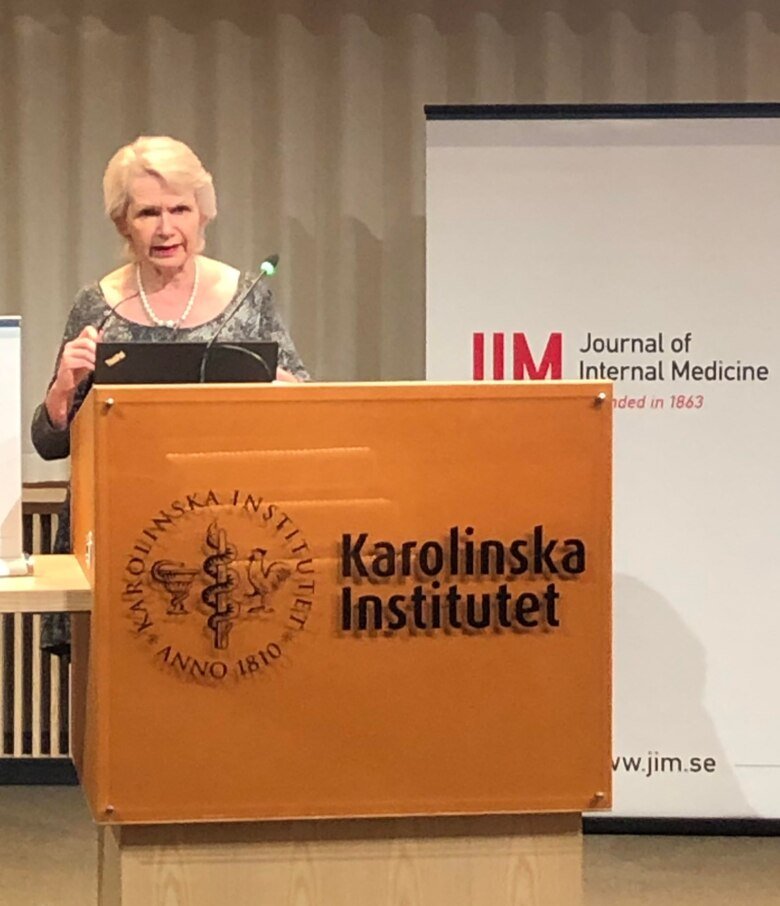
The programme and venue provided excellent opportunities for an exchange of ideas among participants (about 100 persons attended the event on site and 200 joined digitally online).
The morning started with an inspiring presentation by Professor Anne Hendry, Senior Associate at the International Foundation for Integrated Care Scotland, UK, who highlighted what matters for older adults, and that preventing frailty should be prioritised through a cohesive care organisation that includes digital solutions. She showed several successful models across Europe that we can learn from.

One of the key messages that Professor Brendan McCormack, Director of the Susan Wakil School of Nursing and Midwifery, Australia, highlighted in his talk was that we need to pay attention to the meaning of words and distinguish between patient-centred and person-centred care. He pointed out an important aspect that should permeate our care culture: person-centred care cannot be task-oriented, but rather needs to build on relationships between people. A culture with a focus on person-centredness needs to be anchored in our workplaces and organisations, whether it is in regional or municipal health care or at colleges and universities.
Person-centred care
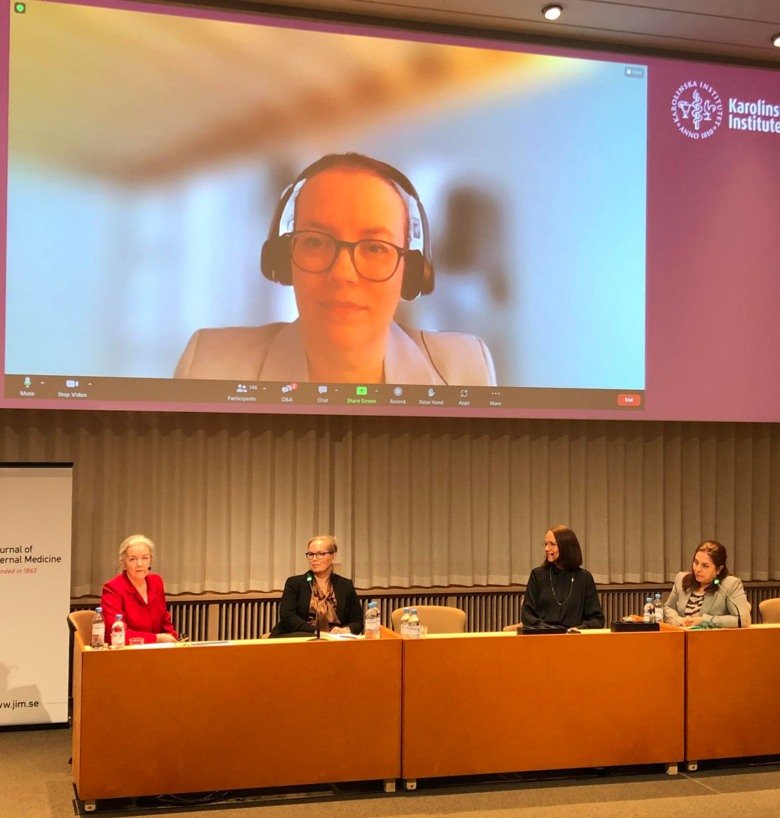
During the first session, Annika Söderman, Lecturer at Örebro University, reflected on how patient dignity can be preserved in home care and special housing using a person-centred palliative care model to support nurses and staff. Lena Marmståhl Hammar, Associate Professor at Mälardalen University, pointed to the importance of dignity and well-being as important outcomes in person-centred care for older adults.
Senior Lecturer Zahra Ebrahimi, at the Centre for Person-Centred Care (GPCC), University of Gothenburg, presented the IHOP-e-project implemented in Gothenburg, which has used e-health as a tool to integrate health promotion with and for older people.
Anna Sandgren, Lecturer at Linnaeus University, talked about her experiences of a care programme for serious illness based on the key features of person-centred care.
Integrated care
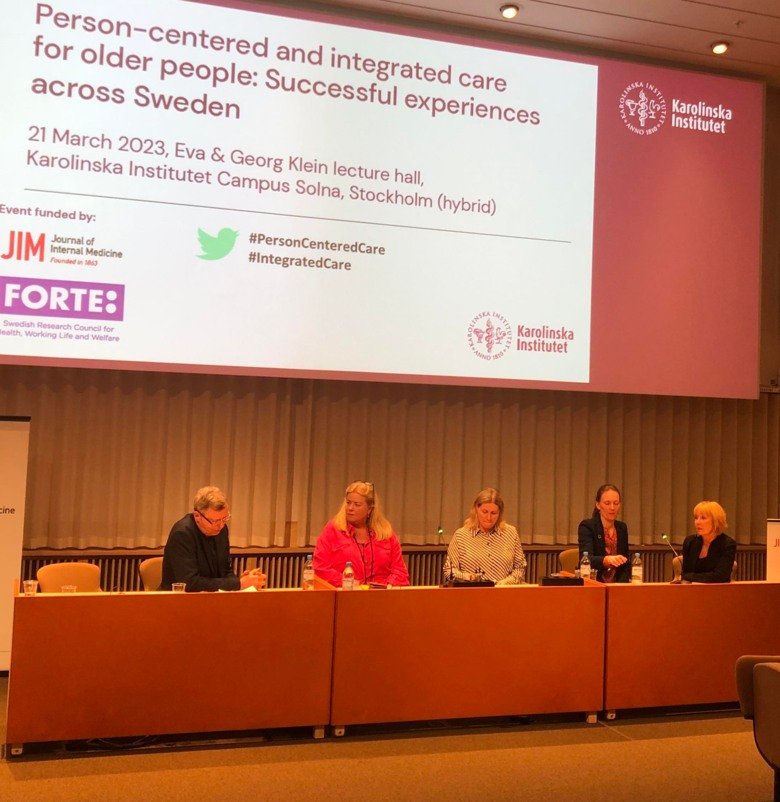
The second session offered two inspiring examples of integrated care from Norrtälje/TioHundra and Mälardalen University. Both Division Head of FoUU Tiohundra Helena Hvitfeldt, and Lena-Karin Gustafsson, Associate Professor at Mälardalen University, showed that collaboration between different professional groups, as well as between different actors within regions and municipalities, is possible and can lead to improved care for the older population. An important lesson was that it takes time and that relationship-building is crucial for these initiatives to succeed.
Some of the relevant issues raised by Helle Wijk, Professor at Sahlgrenska Academy and Janne Agerholm, Assistant Professor at Karolinska Institutet, revolved around how funding between regions and municipalities as well as responsibility for research and care among stakeholders should be managed and administered.
National standards
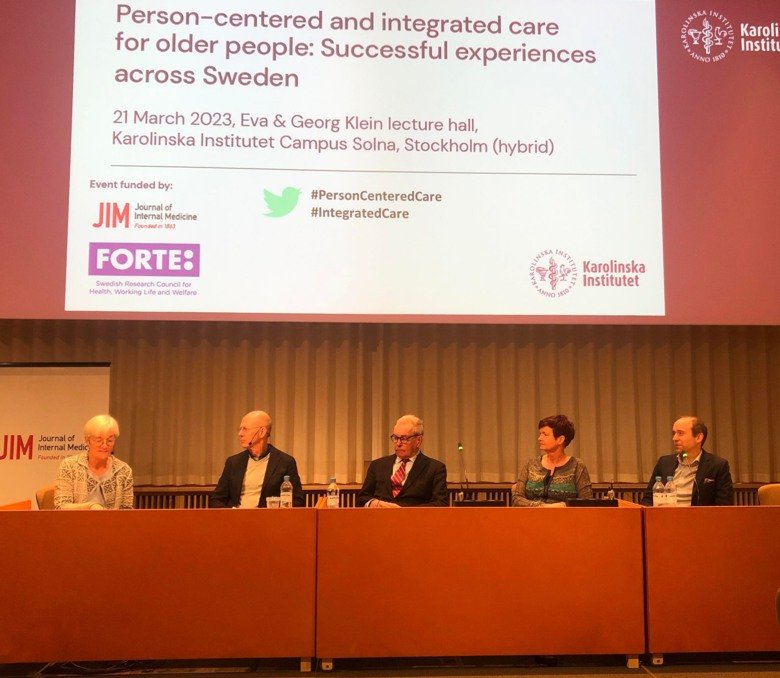
During the third session, Karl Swedberg, Professor at Sahlgrenska Academy, presented the possibilities of standardisation of person-centred care in research and in clinical practice.
Joakim Öhlén, Professor at the Centre for Person-Centred Care (GPCC), University of Gothenburg, pointed to the importance of the three levels – individual, operational and strategic – when implementing person-centred and integrated care.
Peter Nilsson, Policy Analyst at the Swedish Agency for Health and Social Care Analysis, described the main features of integrated care from a patient perspective and Quality Manager at Region Jönköping, Nicoline Vackerberg, provided good examples of how the Esther project in Region Jönköping has been systematically (and positively) evaluated thanks to a strong collaboration between the university and healthcare providers in the region.
Workshop

On 22 March 2023, a large part of the speakers, discussants, moderators and organisers participated in a workshop where they discussed experiences and challenges related to person-centred and integrated care initiatives.
The discussions laid the foundation for collaboration on a publication, "Scoping review of interventions on person-centered and integrated care for older people across Sweden", to be published in the Journal of Internal Medicine (JIM) by the end of the year.
The entire two-day event was funded by the Journal of Internal Medicine and the Swedish Research Council for Health, Working Life and Welfare (FORTE).
Organising Committee
- Amaia Calderón-Larrañaga, Janne Agerholm, Carin Lennartsson, Davide Liborio Vetrano, Laura Fratiglioni, from the Aging Research Center, Department of Neurobiology, Care Sciences and Society at Karolinska Institutet
- Anne-Marie Boström, from the Division for Nursing, Department of Neurobiology, Care Sciences and Society at Karolinska Institutet
- Maria Eriksdotter, from the Division of Clinical Geriatrics, Department of Neurobiology, Care Sciences and Society at Karolinska Institutet
- Gunnar Nilsson, from the Division of Family Medicine and Primary Care, Department of Neurobiology, Care Sciences and Society at Karolinska Institutet
- Åsa Hedberg, from the Stockholm Gerontology Research Center (and Aging Research Center, NVS/KI)
